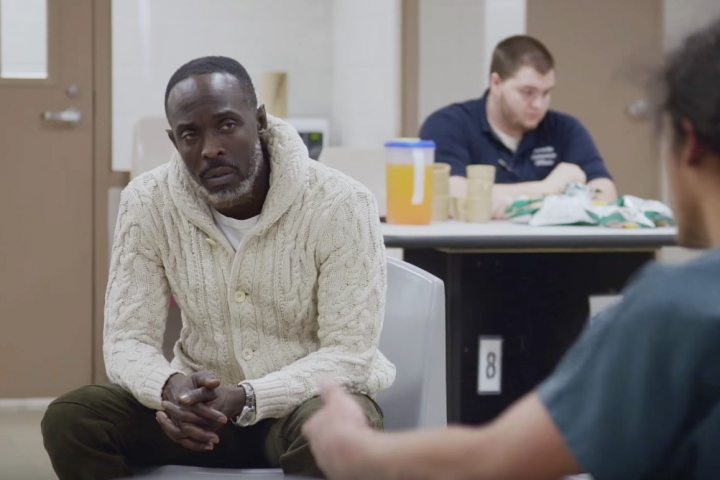
The real tragedy of juvenile incarceration is that it robs children of everything we hold dear about youth: all of the innocence, all of the freedom to dream, all of the joy. Early in “Raised in the System,” the first episode of the sixth season of the gritty HBO newsmagazine series “Vice,” an incarcerated young man named Jabar says of the first time he was locked up, “I was 15 years old. Five years before that, I was believing in Santa Claus.” It’s both a haunting remark and a recurring theme throughout this sophisticated, revelatory look at the juvenile justice system.
Vice Media’s documentaries have cultivated a bit of a reputation for sending white Brooklynites with unkempt hair to romp around dangerous locales, searching for the likes of Somali warlords and black-market kidney brokers. It’s a style that’s grating at best, ignorant at worst and, more often than not, does a disservice to the subject being covered.
But “Vice” has an outstanding host in Michael K. Williams (“The Wire”), whose worldview is rooted not in 2010s Williamsburg, but in 1980s East Flatbush. Williams speaks candidly about his own upbringing, marked by drugs and violence, and about his personal interactions with the system. His nephew Dominic, who appears in the episode, was sentenced to 25 years in prison as a teenager. It lends him an instant kind of credibility — rather than being sustained by some perverse sense of adventure, “Raised in the System” feels motivated by Williams’s earnest curiosity about the institutions that have shaped the lives of his family and community members.
The charm and affability that made him so enjoyable to watch as Omar Little on “The Wire” is on full display here. Williams is an exceptional interviewer who is able to quickly establish a rapport with each of his subjects — whether they be a distinguished researcher or a seventh grader in Newark.
The U.S. has one of the highest incarceration rates in the world, and, lately, there has been plenty of excellent media exploring the policy decisions that have got us to this point. Ava DuVernay’s (“Selma”) eye-opening Netflix documentary “13th” dutifully chronicles the history of incarceration from the era of slavery to the modern prison-industrial complex. Journalist Nell Bernstein’s book “Burning Down the House” tells the story of the cultural and legal origins of juvenile justice. In the opening minutes of “Raised in the System,” we see some brief, damning news clips from the ’80s and ’90s — a Newt Gingrich soundbite is immediately followed by Hillary Clinton’s infamous “superpredator” remarks, reminding us that there’s an equal opportunity blame here. But other than that, the documentary doesn’t spend too much time on history.
Instead, “Raised in the System” focuses on where we are now and how people and communities are fighting to solve this problem. The documentary takes us around the country to visit various mentoring organizations and anti-recidivism programs trying to end the school-to-prison pipeline. These all certainly make for compelling subjects, but “Raised in the System” reaches its emotional heights when Williams speaks with people who have been locked up since youth — the incarcerated people we meet all show keen emotional intelligence and genuine remorse.
“Part of me’s glad I’m locked up, because I got my shit together while doing my years,” says 16-year-old prisoner Danielle. “But it don’t take 30 years for you to get your shit together.”
And though the episode ends on a somewhat hopeful note, it’s a decidedly bittersweet one that leaves us with some lingering questions. Why do we choose to criminalize adolescence? Why does our society withhold the privilege of screwing up from Black youth? How much potential have we sentenced to waste away behind bars? What have we done? The issue at hand is a daunting, generational problem, and Williams has treated it with needed urgency and gravity.

